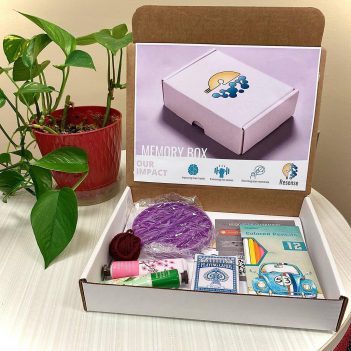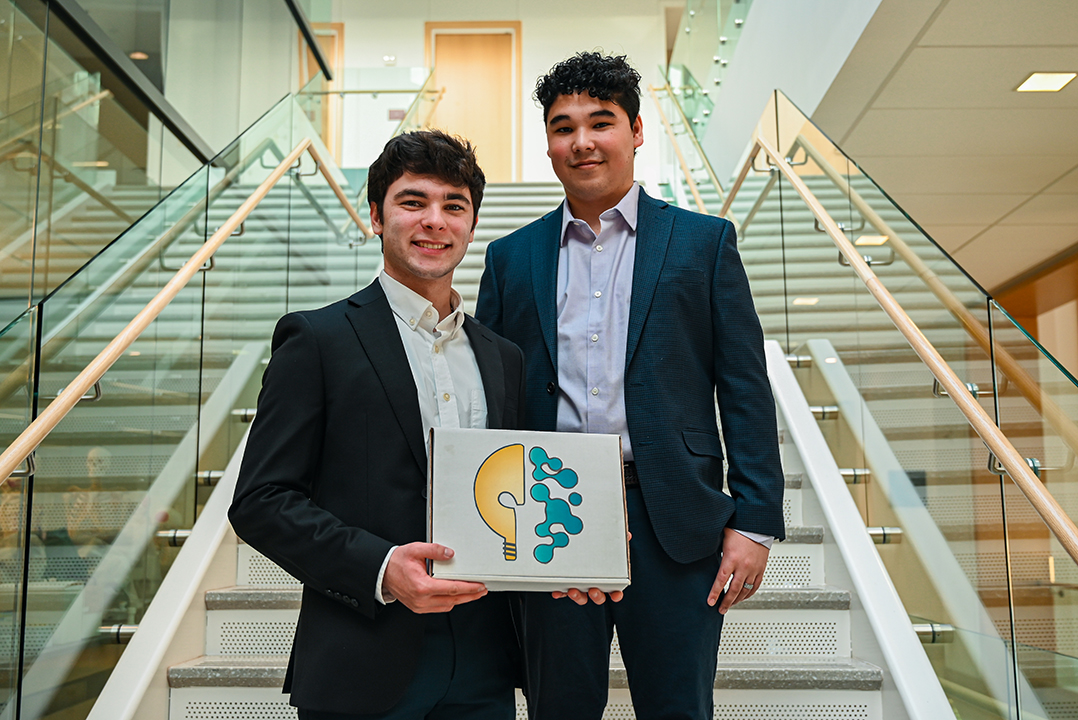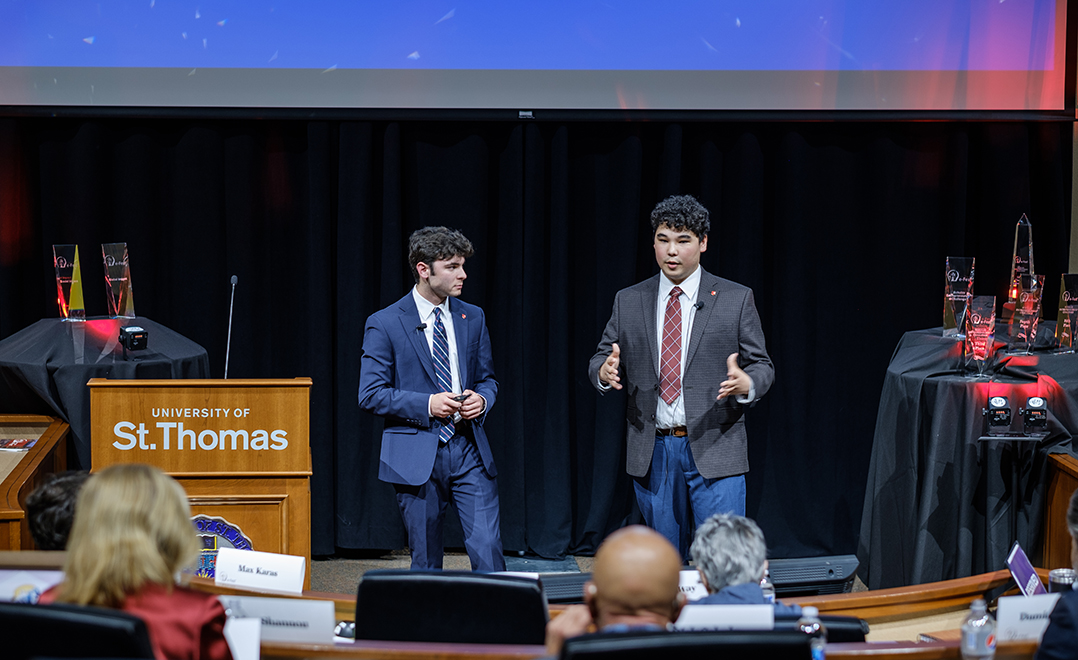What started out as a school project has become a business helping people living with Alzheimer’s disease and dementia.
Fishers resident Luke Gilligan worked in nursing homes and care facilities throughout high school, so he saw the impact Alzheimer’s and dementia had on patients and their care givers. That is why when given the opportunity in an entrepreneurship class, Gilligan, an entrepreneurship major at Grove City College in Pennsylvania, wanted to create something that would give back to those with the disease.

Gilligan said it broke his heart to often see patients with dementia neglected or “treated like children” in care facilities. So he and a business partner created a business, Resense, that assembles memory boxes for people with Alzheimer’s or dementia.
“Because these individuals, they’re our grandparents, they are our parents and they are our friends and they taught us everything we know,” Gilligan said. “And so, we need to give that support and love right back to them and so I feel like this box is the perfect way to do that.”

The class is also where he met his now business partner Ethan David, an entrepreneurship and religious studies major from Mars, Penn. The pair, with the help of the Center of Entrepreneurship and Innovation at Grove City College, launched their brand Resense.
Gilligan and David’s mission was to make memory boxes intended to help with brain health. The memory box has four different tools to stimulate senses that help with memory recall.
The boxes include a pop-it rubber fidget toy, Sudoku puzzles, adult coloring pages, word searches, a deck of cards, a tube of lotion and a card with links to Spotify and YouTube playlists with hits from the 50s through the 80s, so every patient can hopefully find music they grew up with.
While creating the boxes, Gilligan and David conducted 70 interviews with professionals in the field to determine what they should put in their box. The puzzles and fidget toy allows patients to activate their tactile senses and abilities. The word searches, Sudoku and coloring pages keep their brains active, and the lotion is for aroma therapy and provides a way for caretakers to connect with patients.

“Another one of our avenues for this is that we want to provide a toolkit for the caregivers, for the activities directors, for the executive directors of communities, to use as a way of engaging with their residents and giving them something that is an engaging activity but also helpful to their brain health and giving them something that they enjoy,” David said.
Gilligan agreed, saying the boxes provide an outlet for care givers to easily connect with patients.
“Why I really think it’s a necessary item is, it’s a way to automatically have a relationship with a stranger or your client because you can just bring this box and sit down and say, Hey, let’s start playing with these items,’” Gilligan said.
David and Gilligan have entered their business in a couple of competitions across the U.S. At e-Fest 2022 at the University of St. Thomas in Minneapolis, Minn., the entrepreneurs came in fifth, winning $10,000 to advance their business.
While Resense has gotten business locally and across the U.S., Gilligan and David are looking to expand globally, specifically to Ukraine, where they hope to be able to help people with Alzheimer’s and dementia and their care givers.
Gilligan and David are partnering with The Marshal Fund Ministries, a company that is helping elderly people in Ukraine, to help kickstart their new Memory Box 2.0 and get it sent out to people in need in Ukraine. They also have commissioned Ukrainian artists to design the new coloring pages in the box and design T-shirts. For every two shirts sold, a box will be donated to someone in Ukraine living with Alzheimer’s or dementia.



